1. Gerhard Schmitt
・Professor for Information Architecture at ETH Zurich
・ETH Zurich Senior Vice President for ETH Global
・Director of the Singapore-ETH Centre in Singapore
・Swiss Federal Institute of Technology, ETH Zurich, Germany
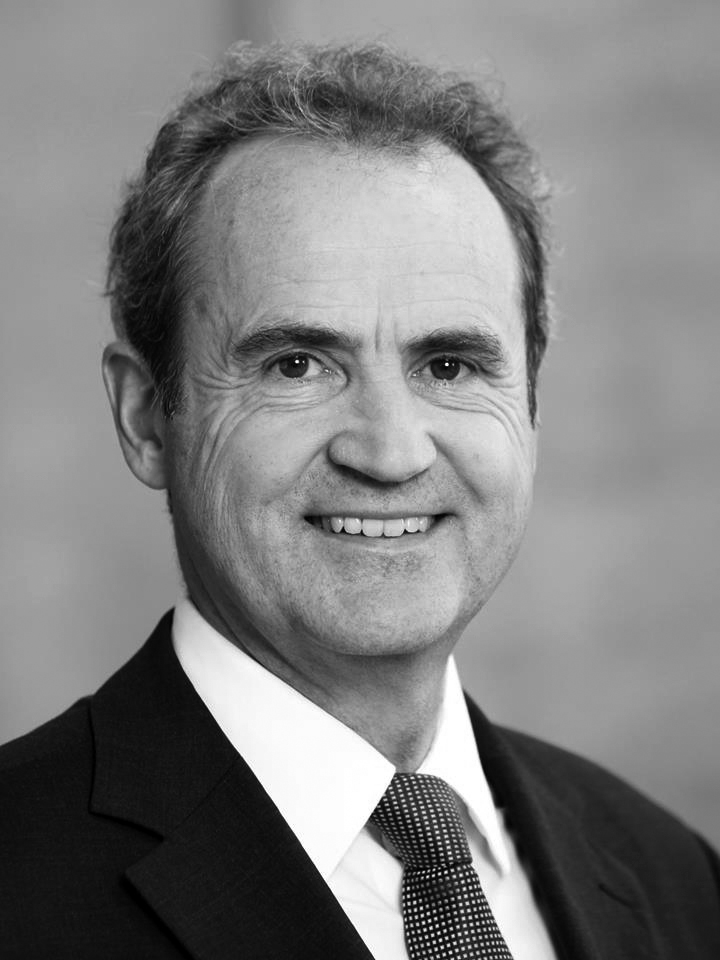
Gerhard Schmitt is Professor of Information Architecture at ETH Zurich, Director of the Singapore-ETH Centre in Singapore, Lead PI of the ETH Future Cities Responsive Cities Scenario, and ETH Zurich Senior Vice President for ETH Global.
Gerhard Schmitt holds a Dipl.-Ing. and a Dr.-Ing. degree of the Technical University of Munich, TUM, and a Master of Architecture from the University of California, Berkeley. His research focuses on Responsive Cities, Smart Cities and linking Big Data with urban design, urban models, simulation and visualization. He and his team developed and taught the first Massive Open Online Course Series on Future Cities with more than 110’000 registrations.
From 1998-2008 he served as Vice President for Planning and Logistics and Member of the Board of ETH Zurich. He directed the development of ETH’s strategy and planning in cooperation with the 16 scientific departments. From 1984 to 1988 he conducted CAAD research and teaching at Carnegie Mellon University. He joined ETH Zürich in 1988. He was Visiting Professor at Harvard GSD, at the Katholieke Universiteit Leuven, the Technical University of Denmark and at the Technical University of Delft. From 2004-2007 he chaired the Visiting Committee of the Graduate School of Design at Harvard University. Gerhard Schmitt initiated and conceptualized the sustainable ETH Science City Campus in Zürich and received for this work the 2010 European Culture of Science award.
2. Peter Buš
Postdoctoral Researcher & Lecturer
Swiss Federal Institute of Technology, ETH Zurich, Slovak
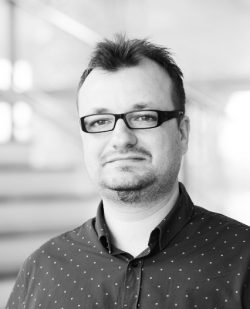
Peter is a Postdoctoral researcher and a co-leader of Digital Urban Simulation course at the Chair of Information Architecture. Trained as an architect and researcher in the field of computational design modelling he focuses on generative models and advanced urban simulations that can help architects and urban planners in the decision-making, planning and design processes. Peter’s long-term research is based on an investigation of phenomenon of emergence and urban autopoiesis in terms of self-creation and self-organisation of bottom-up urban patterns. Peter focuses on local-scale phenomena in behavioural urban models in order to identify patterns, potentials and strategies how to improve conditions for a livability in an investigated environment. By means of visual language which is being developed within the framework of custom-based computational models and visualisations he concentrates on more complex relations which forms the urban entirety.
Prior to obtaining his PhD degree from the MOLAB Cabinet of Architectural Modelling at the CTU in Prague, Peter gained experience as a practising architect and as a researcher at the Future Cities Laboratory Singapore ETH Centre. Peter holds Bachelor of Arts (2002) and Master of Arts in Architecture (2004) from the Academy of Fine Arts and Design in Bratislava, Slovakia.
3. AYÇA TARTAR
Postdoctoral Researcher
Swiss Federal Institute of Technology, ETH Zurich, Turkey
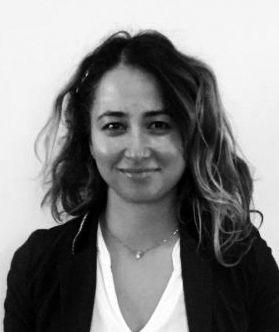 Ayca Tartar holds a PhD in Department of Architecture, Building Sciences Program, in Istanbul Technical University, Turkey. Her thesis “Floating Architecture Design Process Modeling Supported by Rule Based Decision Making” inherits a transdiciplinary approach as she worked with Naval Architecture and Shipbuilding departments focusing on using fuzzy logic to support decision making process. Following her PhD she gave lectures for master and undergraduate courses about floating cities, floating performance centers, yacht interior designs with a team of researchers from Delft University made collaborations with design informatics department and published several papers for international conferences. She has also completed her master degree in Building Sciences Program with a thesis on “Light Steel Construction Technology and Design Possibilities”. After studying light steel technology in her master thesis she worked on floating urban water spaces design process modeling with fuzzy logic. Today she is interested in using information architecture in designing floating cities. Her research aims to focus on urban water space design process and manufacture techniques. Purpose of her study is to develop a new design strategy for the floating building construction design management with applying recent advances in the fields of new materials and information architecture. She wants to use the experience gained carrying out her research in information architecture and use the insights for floating building design management. Research facilities of other departments such as Naval Architecture, Shipbuilding and information architecture should be used in joint in her studies. She believes that interaction between universities and students is the only way for an efficient theoretical and practical approach to design.
Ayca Tartar holds a PhD in Department of Architecture, Building Sciences Program, in Istanbul Technical University, Turkey. Her thesis “Floating Architecture Design Process Modeling Supported by Rule Based Decision Making” inherits a transdiciplinary approach as she worked with Naval Architecture and Shipbuilding departments focusing on using fuzzy logic to support decision making process. Following her PhD she gave lectures for master and undergraduate courses about floating cities, floating performance centers, yacht interior designs with a team of researchers from Delft University made collaborations with design informatics department and published several papers for international conferences. She has also completed her master degree in Building Sciences Program with a thesis on “Light Steel Construction Technology and Design Possibilities”. After studying light steel technology in her master thesis she worked on floating urban water spaces design process modeling with fuzzy logic. Today she is interested in using information architecture in designing floating cities. Her research aims to focus on urban water space design process and manufacture techniques. Purpose of her study is to develop a new design strategy for the floating building construction design management with applying recent advances in the fields of new materials and information architecture. She wants to use the experience gained carrying out her research in information architecture and use the insights for floating building design management. Research facilities of other departments such as Naval Architecture, Shipbuilding and information architecture should be used in joint in her studies. She believes that interaction between universities and students is the only way for an efficient theoretical and practical approach to design.
4. MEI-CHIH CHANG
Postdoctoral Researcher
Swiss Federal Institute of Technology, ETH Zurich, Taiwan
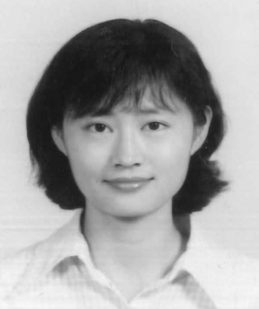 Mei-Chih Chang is a Postdoctoral Researcher at the Chair of Information architecture. Owing to two backgrounds: the architecture design and the computer science, the topics of her researches try to find solutions from the computer science to solve problems in the architecture. Currently, her researches focus on two fields: one is Design Oriented Cognitive Computing, which takes machine learning/deep learning methodologies to do urban data analytics and combines urban design rules & space syntax theory to automatically generate possible better complex urban plans. Another one is the game-theory based voting system, which uses Ethereum as the basic network security system to help citizen participatory designs reach the consensus. She has many publications in the domain of Computer Science, Digital Architecture Design and Civil Engineering.
Mei-Chih Chang is a Postdoctoral Researcher at the Chair of Information architecture. Owing to two backgrounds: the architecture design and the computer science, the topics of her researches try to find solutions from the computer science to solve problems in the architecture. Currently, her researches focus on two fields: one is Design Oriented Cognitive Computing, which takes machine learning/deep learning methodologies to do urban data analytics and combines urban design rules & space syntax theory to automatically generate possible better complex urban plans. Another one is the game-theory based voting system, which uses Ethereum as the basic network security system to help citizen participatory designs reach the consensus. She has many publications in the domain of Computer Science, Digital Architecture Design and Civil Engineering.
Mei-Chih Chang holds a Ph.D. degree in Architecture, National Taiwan University of Science and Technology. She completed two master degrees: Computer Science and Information Engineering, National Taiwan University and Architecture, National Chiao Tung University.
5. Shi-Yen Wu
Assistant Professor, D&A Lab Leader
National United University, Taiwan
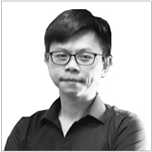 Shi-Yen Wu is a professional artist and assistant professor at the National United University. He gained his Master of Fine Art from the Taipei National University of the Arts. Shi-Yen has taught architecture design and international design competition, drawing and digital fabrication at many leading academic institutions such as National Taiwan University of Science and Technology and National Taipei University of Technology, department of architecture. He recently established the digital fabrication lab in the National Taiwan University of Science and Technology with a focus on collaborating with international academia and organizations such as AA, UCL and DEZACT (UK) to develop a new educational model in architectural construction. He has served as a visiting scholar in the UK and previously worked as a confidential secretary of the ministry of culture in the past. He is also a curator of the Tibetan film festival in Taiwan.
Shi-Yen Wu is a professional artist and assistant professor at the National United University. He gained his Master of Fine Art from the Taipei National University of the Arts. Shi-Yen has taught architecture design and international design competition, drawing and digital fabrication at many leading academic institutions such as National Taiwan University of Science and Technology and National Taipei University of Technology, department of architecture. He recently established the digital fabrication lab in the National Taiwan University of Science and Technology with a focus on collaborating with international academia and organizations such as AA, UCL and DEZACT (UK) to develop a new educational model in architectural construction. He has served as a visiting scholar in the UK and previously worked as a confidential secretary of the ministry of culture in the past. He is also a curator of the Tibetan film festival in Taiwan.
